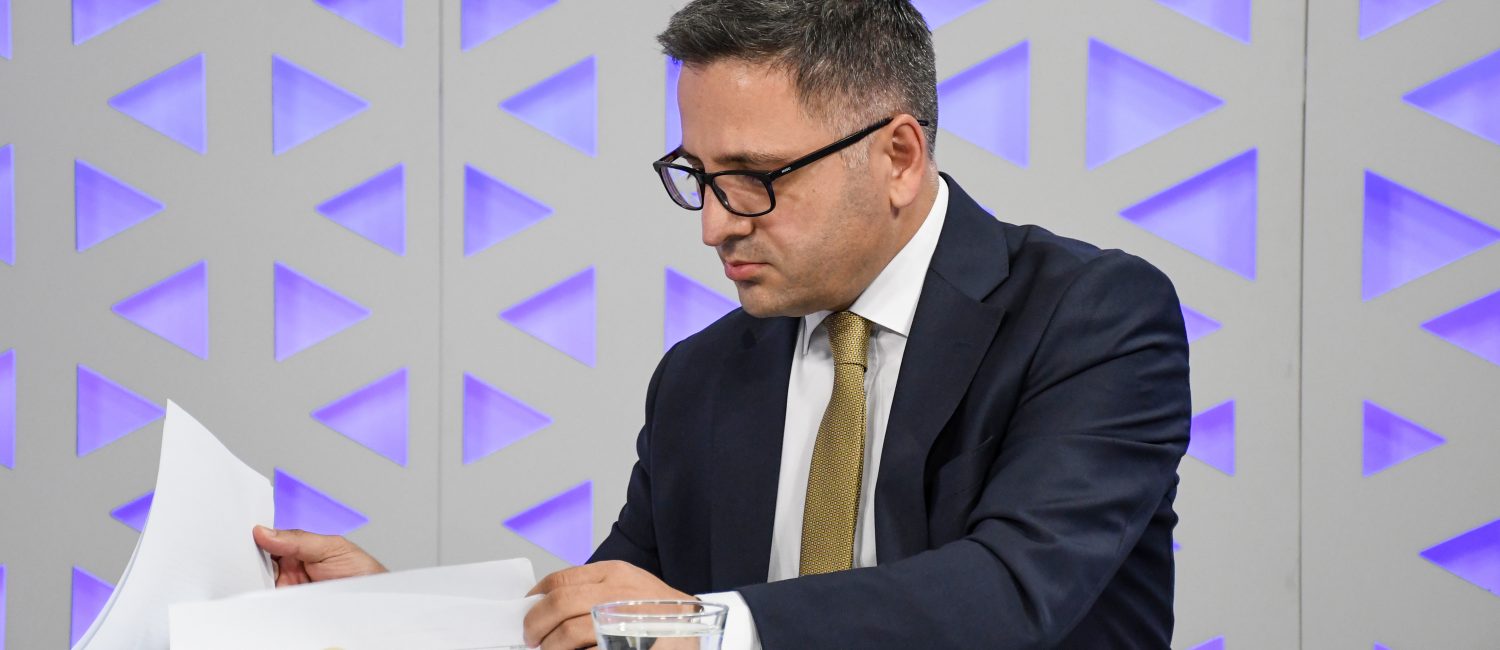26th September 2023, Skopje – Budget support for both domestic and foreign companies amounts to almost EUR 150 million, or five times the amount compared to five years ago. Moreover, reinvested profit is tax exempt on two bases. During the COVID-19 crisis, the Government implemented series of measures aimed at supporting the companies. Under the solidarity principle, the companies having generated extra profit as a result of last year’s market developments, most of which used government measures, are to contribute themselves by paying the solidarity tax. The funds will be used solely for the new set of anti-crisis measures for the citizens and the companies, Minister of Finance, Fatmir Besimi, said at his guest appearance on TV24 yesterday, participating in the debate with the business sector representatives.
“If we look back, direct budget subsidies to the business sector on the basis of investments, as well as on the basis of other programs, which amounted Denar 1.9 billion in 2017, are increased to Denar 7.76 billion this year. Parliamentary Commission debate to increase these funds for additional Denar 1.3 billion will take place tomorrow already. Support the Government extends to the business sector is considerable. For instance, let’s have a look at the COVID-19 crisis period, when EIB favourable loans, interest-free loans, guarantee scheme were available. Now, additional EUR 100 million and EUR 50 million is extended from EIB and the Council of Europe Development Bank respectively”, Besimi pointed out, adding that reinvested profit is tax exempt, i.e. it is excluded from the taxable base.
The Minister emphasized that most of the companies having generated extra profit last year, in particular having generated profit higher than 20% of the average in the last three years, and being subject to solidarity tax are those operating in the energy sector (around 40%), followed by companies operating in the banking sector, games of chance and retail sale (also 40%), with 20% being companies operating in other sectors.
Besimi underlined that solidarity tax was adopted through an inclusive process, starting December 2022, with many public debates and bilateral meetings taking place with the Chambers of Commerce. Series of their suggestions were accepted during the debates, one of which referred to the periods taken as basis for tax assessment, which led to reduction of this measure’s fiscal effect from EUR 90 million to EUR 50 million.
“I am aware that the companies would not offer thanks for the Solidarity Tax Law, since they are imposed new duties. But, what are the implications therefrom? Implications, should the solidarity tax not be implemented, are that the funds are to be secured in another way, which is borrowing with an interest rate of minimum 7%. These funds will be again paid by the taxpayers – us, the future generations, but at much higher costs”, Minister Besimi pointed out.
Many EU Member States have introduced the solidarity tax. It is based on two principles – extra profit generated by the market trends and solidarity.
















